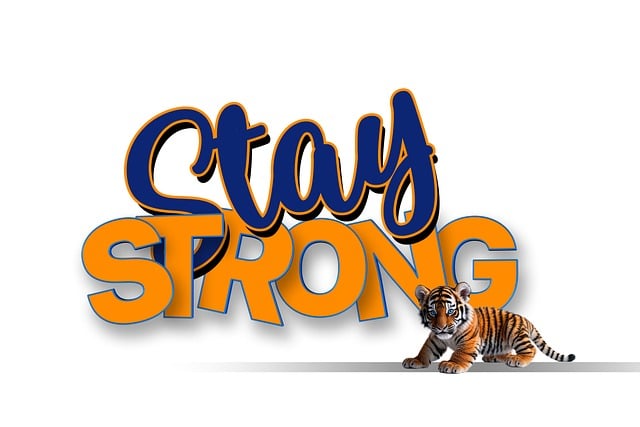Self-Care Workshops Empower Co-Dependents with Tools for Healing and Relaxation
Co-dependency support groups for loved ones of addicts face immense emotional and physical strain. S…….
Over 15% US adults have used prescription painkillers not prescribed to them.
In the intricate web of addiction, its impact extends far beyond the individual struggling with dependency. Family members and close loved ones often find themselves caught in a cycle of concern, confusion, and sometimes, codependency. Codependency, a complex psychological phenomenon, arises when an individual becomes overly reliant on another for emotional or physical well-being, often as a coping mechanism to deal with their own challenges. This is where co-dependency support groups step in—as a beacon of hope and understanding for those affected by addiction.
This article aims to delve into the world of co-dependency support groups specifically tailored for loved ones of addicts, exploring their structure, impact, global reach, and future potential. By the end, readers will grasp the significance of these groups in the broader context of addiction recovery and community support.
Co-dependency support groups are peer-led gatherings where individuals who have a loved one struggling with addiction find solace, guidance, and a sense of community. These groups follow a structured format, often guided by facilitators trained in facilitating discussions, sharing experiences, and offering emotional support. Key components include:
The concept of co-dependency support groups emerged from the broader addiction recovery movement in the late 20th century. Initially, focus was on helping individuals struggling with substance use disorders. However, as researchers delved deeper into the impact of addiction on families, it became evident that loved ones also needed support to navigate their unique challenges.
These groups fill a critical gap by addressing the emotional and psychological aspects of codependency, which are often overlooked in traditional treatment programs centered around the addict. By providing a supportive environment, these groups empower members to:
Co-dependency support groups have transcended geographical boundaries, offering solace to millions worldwide. While specific data on global participation is challenging to pinpoint due to diverse cultural contexts and reporting practices, several trends emerge:
| Region | Notable Groups/Initiatives | Impact |
|---|---|---|
| North America | Al-Anon (for family and friends of alcoholics) and Nar-Anon (for family members of drug addicts) have a strong presence, with thousands of meetings across the US and Canada. | These groups are widely recognized and offer structured programs with extensive resources, reaching a vast network of individuals. |
| Europe | The European Addiction Treatment Association (EATA) promotes peer support groups like SMART Recovery for co-dependents, focusing on cognitive-behavioral techniques. | EATA’s efforts have contributed to increased awareness and access to evidence-based peer support across the continent. |
| Asia | In Japan, “Kyoiku Kenkou Kyokai” offers support for family members of addicts, while India has seen the growth of online groups like “Addiction Support India.” | These regional initiatives showcase cultural adaptations, addressing unique challenges within diverse societies. |
| Global Online Platforms | Websites and apps offering virtual co-dependency support have gained popularity, ensuring accessibility during COVID-19 restrictions and beyond. | Online platforms democratize access to support, connecting individuals globally who may not have local groups available. |
The economic landscape surrounding co-dependency support groups is multifaceted, involving both direct and indirect financial implications:
Technology has revolutionized co-dependency support, making resources more accessible and interactive:
The regulatory landscape for co-dependency support groups varies globally, influenced by cultural, social, and political factors:
Despite their proven benefits, co-dependency support groups face several challenges:
| Challenge | Description | Proposed Solutions |
|---|---|---|
| Stigma and Misunderstanding | Stigma surrounding addiction and codependency often deters individuals from seeking support. | Increase public awareness campaigns and educate healthcare providers to reduce stigma and improve referral rates. |
| Accessibility | Limited access to groups in rural or underserved areas, and financial barriers for some participants. | Expand online platforms and mobile apps to reach a broader audience. Partner with community organizations to offer subsidized or free sessions. |
| Training and Certification | Inconsistent training among facilitators raises concerns about the quality of support provided. | Establish standardized training programs and certification criteria for group facilitators, ensuring consistent delivery of evidence-based practices. |
| Integrating with Traditional Treatment | Co-dependency groups are sometimes viewed as complementary rather than integral to addiction treatment plans. | Collaborate with healthcare providers to integrate peer support into mainstream addiction treatment frameworks, recognizing the symbiotic relationship between these approaches. |
Al-Anon, founded in 1950, is a global fellowship for family members and friends of alcoholics. With over 24,000 meetings weekly in 163 countries, it offers a structured 12-step program to help codependents recover from the effects of living with addiction. Their success lies in:
SMART Recovery, established in the US in 1994, has expanded globally, including a strong presence in Europe. This evidence-based program offers peer support groups focused on cognitive-behavioral techniques. Their approach includes:
The future of co-dependency support groups looks promising, with several growth areas and emerging trends:
Co-dependency support groups for loved ones of addicts represent a powerful tool in the global fight against addiction. By providing a safe, supportive environment, these groups empower individuals to navigate their unique challenges and contribute positively to the recovery process. As we look ahead, technology, policy reforms, and cultural adaptations will shape their evolution, ensuring they remain essential resources in the broader healthcare landscape.
Q: What is codependency?
A: Codependency is a behavioral pattern where an individual becomes overly reliant on another for emotional or physical satisfaction, often as a means of coping with personal issues or insecurity. It can develop in various relationships, including romantic partnerships, families, and friendships.
Q: How are co-dependency support groups different from traditional 12-step programs?
A: While both share some similarities, co-dependency support groups focus specifically on the loved ones of addicts, addressing their unique challenges. Traditional 12-step programs, like Alcoholics Anonymous (AA), are designed for individuals struggling with substance use disorders. Co-dependency groups emphasize peer support and education tailored to family members’ needs.
Q: Can co-dependency support groups be effective for all ages?
A: Absolutely! These groups cater to a wide range of ages, from teenagers supporting parents with addiction issues to older adults helping younger family members. The shared experiences across generations can foster a powerful sense of understanding and solidarity.
Q: Are there any costs associated with attending co-dependency support groups?
A: Most co-dependency support groups are free or offer low-cost sessions, making them accessible to all. However, some may charge a small fee for materials or specific services, and online platforms might have subscription models for access to premium content.
Q: How can I find a co-dependency support group near me?
A: Many local community centers, churches, and healthcare facilities host such groups. You can also search online directories or contact addiction treatment centers for recommendations. Online platforms offer virtual meetings, making it easier to connect with groups globally.

Co-dependency support groups for loved ones of addicts face immense emotional and physical strain. S…….

Cognitive-Behavioral Therapy (CBT) is a powerful tool within co-dependency support groups, helping i…….

Holistic wellness programs offer a revolutionary, inclusive approach to recovery by addressing physi…….

Meditation, especially within online co-dependency support groups for loved ones of addicts, is a po…….

Mental health emergencies significantly impact individuals and their support networks, including co-…….

Sleep disturbances, particularly insomnia, are significant challenges in early recovery, increasing…….

Co-dependency support groups serve as crucial resources for families and friends of substance abuser…….

Motivational Interviewing (MI), a powerful client-centered approach, helps individuals in co-depende…….

Mental health emergencies, from acute suicidal ideation to chronic impairments, stem from genetic, e…….